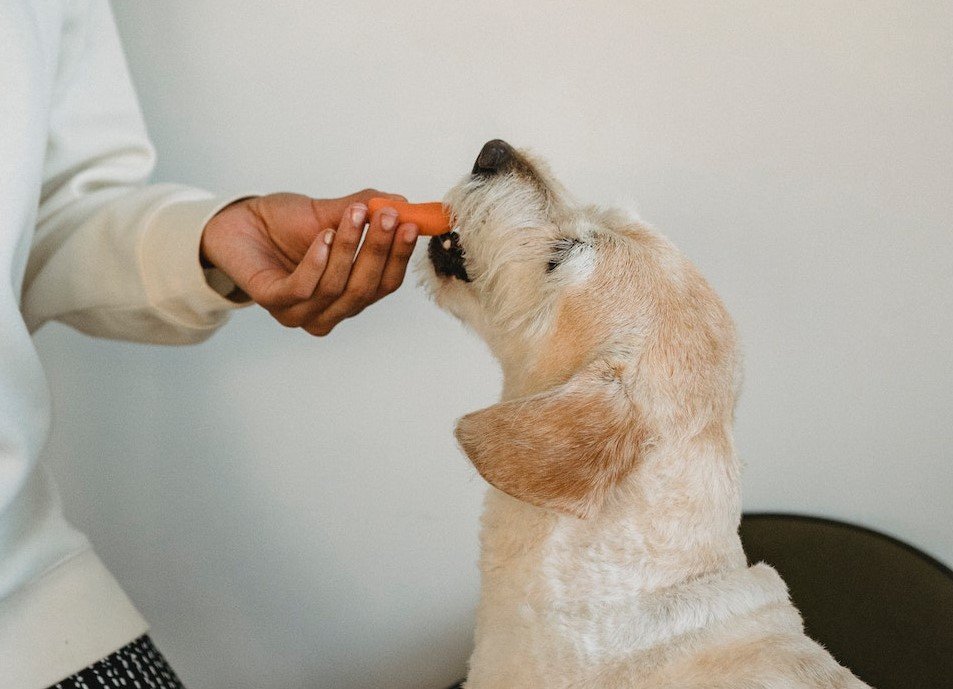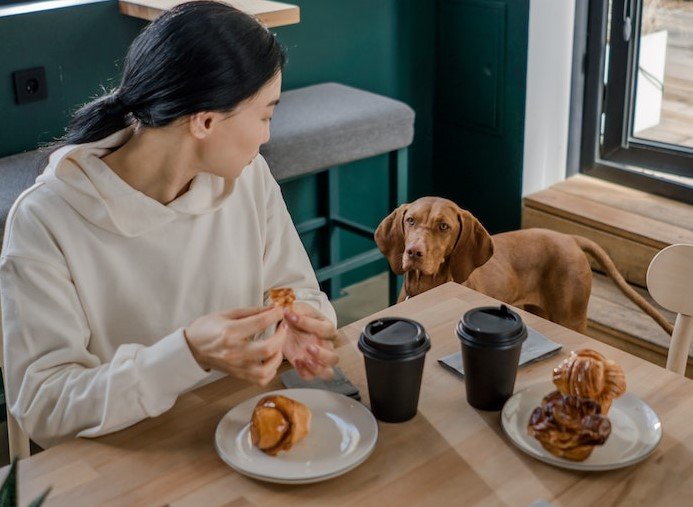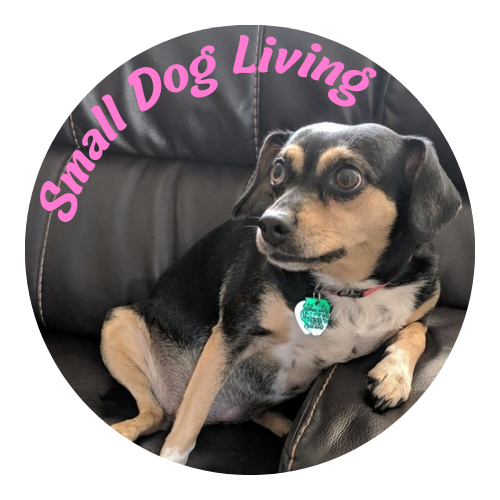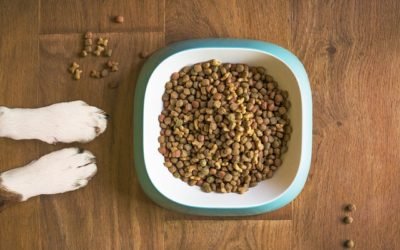If you’re a new puppy parent, you may have found yourself asking, “What human food can puppies eat?” And it’s a valid question – who doesn’t want to spoil their furry friend with a little bit of human food every now and then?
A toss or two from the dinner table is going to happen when they look at you with those puppy eyes. But as much as we love to share our food with our pups, we also need to make sure that what we’re feeding them is safe and healthy.
That’s why we’ve compiled a list of 10 people foods that puppies (and older dogs) can eat without any adverse effects. Read on to learn about 10 human foods that you and your pup can enjoy together!
#1: Cooked Chicken
Chicken is a great source of protein for puppies or older dogs. Just make sure to remove the bones and skin before feeding it to them as they are unsafe for dogs because they can splinter and cause serious health problems.
Cooked chicken bones are especially dangerous because they are more brittle and more likely to break into smaller, sharper pieces that can cause injuries. Keep it just to the meat!

#2: Carrots
Packed with vitamins and minerals, carrots can be a healthy and tasty treat for puppies. Carrots are an excellent low-calorie snack for dogs that can be a great addition to their diet, especially for weight management.
Carrots are low in calories and high in fiber, which makes them filling and satisfying without adding a lot of extra calories to a dog’s diet, and can help to regulate digestion.
Additionally, the act of chewing on carrots can help promote dental health in dogs, which can help prevent tartar buildup and gum disease. Just make sure to cut them into small pieces for puppies to avoid choking.
#3: Peanut butter
A popular treat for dogs, peanut butter is a great source of protein and healthy fats. Most puppies love the taste, and it can be a great training treat for motivation.
Fun bath tip: If your puppy has a hard time in the bath, stick a licky mat for dogs smeared with peanut butter on the side of the tub. It helps calm them down and keeps them distracted.
Just make sure to choose a brand that doesn’t contain xylitol, a sweetener that is toxic to dogs.
#4: Sweet potatoes
Rich in vitamins and fiber, sweet potatoes are a nutritious option for puppies. Just make sure to cook them before feeding them to your pup since raw sweet potatoes can be difficult for dogs to digest and may cause tummy upset.
Raw sweet potatoes contain high levels of starches that are not easily broken down by a dog’s digestive system, so bake or boil them first so they are easier to digest.
#5: Apples
High in fiber, vitamin C, and antioxidants, apples can be a healthy and crunchy snack for puppies.
The fiber in apples can help regulate digestion, which can improve bowel movements and prevent constipation. Additionally, the vitamins and antioxidants in apples can help boost a puppy’s immune system, support healthy skin and coat, and even aid in cognitive function.
Apples also have a high water content, which can help keep puppies hydrated and contribute to their overall health and well-being. Just make sure to remove the core and seeds, which can be a choking hazard.
#6: Plain Greek yogurt
A great source of protein and probiotics, plain Greek yogurt can be a healthy and tasty addition to your pup’s diet.
Just make sure to choose a brand that doesn’t contain added sugar or artificial sweeteners.
#7: Green beans
Low in calories and high in fiber, green beans can be a healthy and crunchy treat for puppies.
Like with sweet potatoes, you’ll want to make sure to cook these first. Cooking green beans can help break down tough fibers and make the nutrients more easily digestible for puppies.
Boiling, steaming, or baking green beans can also help preserve the nutrient content while making them easier for puppies to chew and digest.
#8: Pumpkin
Pumpkin is an excellent source of fiber, vitamins, and minerals, making it a highly nutritious food for puppies.
The fiber in pumpkin can help regulate digestion and prevent constipation in puppies, while also promoting a healthy digestive system.
Additionally, pumpkin is low in calories and high in nutrients, which can help puppies feel full and satisfied without overeating, making it a great option for weight management.
Pumpkin also contains antioxidants, which can help support a puppy’s immune system and promote overall health. Make sure to use plain canned pumpkin, not pumpkin pie filling – and skip the pumpkin spice!
#9: Salmon
Salmon is an excellent source of omega-3 fatty acids, which can promote healthy skin, shiny coats, and joints.
The omega-3 fatty acids found in salmon, such as eicosapentaenoic acid (EPA) and docosahexaenoic acid (DHA), have anti-inflammatory properties that can help reduce inflammation in a dog’s joints and improve mobility.
These fatty acids help keep a dog’s skin moisturized and can help reduce skin irritation or dryness, which can lead to itching and other skin problems. This can be especially beneficial for older dogs or dogs with joint problems such as arthritis, but good for puppies too!
As with chicken, be sure to cook it first and remove any bones (to avoid choking or splintering internally).
#10: Cheese
Cheese is a great source of protein and calcium, which are both essential nutrients for a puppy’s growth and development.
Additionally, cheese can be a tasty and high-value treat for puppies, which can be useful for training and bonding purposes. But use cheese in moderation, as it can be high in fat and calories.

What Not to Feed Your Puppy and Safety Tips
Know what is safe to feed your puppy and introduce human foods in moderation. Human foods can be high in calories, fat, and sodium, which can contribute to obesity and other health problems in puppies.
Some human foods can also be toxic to dogs, such as chocolate, grapes, and onions, which can cause serious health issues or even death if ingested in large amounts. See my post on What Human Food is Bad For Dogs?
Additionally, feeding human food to puppies can cause digestive upset and other health issues if not introduced gradually and in moderation.
Portion control is important. Remember that even safe human foods should only be fed to puppies in moderation. Make sure their main nutrients come from balanced dog food that meets the specific nutritional needs of growing puppies, providing high-quality protein, essential fatty acids, vitamins, minerals, and easily digestible carbohydrates.
What Human Food Can Puppies Eat?
While it’s tempting to share our food with our adorable pups, it’s important to make sure we’re feeding them a healthy and safe diet.
It can be hard to know what people food dogs can eat, but fortunately, there are several that puppies can eat in moderation, which can provide them with valuable nutrients and health benefits.
Remember to always consult with a veterinarian before making any significant changes to a puppy’s diet, and to introduce new foods gradually and in moderation. With a little care and attention, we can provide our puppies with the nutrition they need to grow and thrive, while also treating them to some tasty human foods that we can enjoy together.
Although not human food, it is also never good to feed cat food to your dog. See my post on Is Cat Food Harmful to Dogs?
Remember, a little knowledge and caution can go a long way in keeping your dog happy and healthy.
Also please consider being a dog foster parent. See my article on How to Be a Foster Parent for Dogs for details.
As always, it is important to give your dog proper nutrition as part of an important part of a dog’s health along with feeding the recommended amount. Also check out my article on Are Grain Free Diets Bad for Dogs?
Thank you for visiting Small Dog Living and leave us a comment if you can.








0 Comments